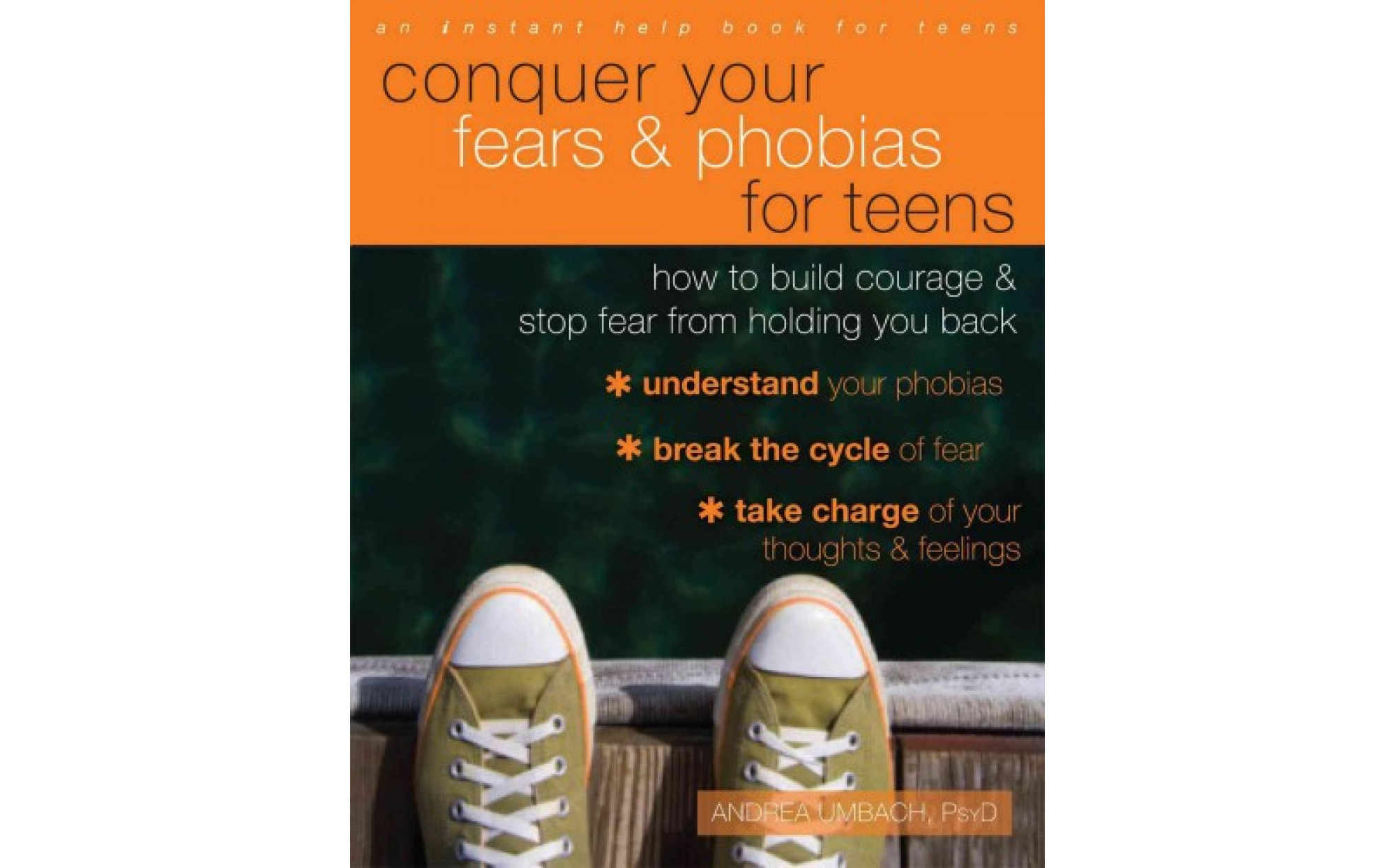Anxiety And Vomiting in Teenager: Conquer Fear with these Proven Tips

Vomiting in teenagers can be a symptom of anxiety, causing distress and discomfort. Anxiety and vomiting are closely linked in teenagers, and it’s important to address the underlying issues to find relief and support for the individual.
Anxiety is a common mental health issue experienced by many teenagers, and when it becomes overwhelming, it can manifest physically as nausea and vomiting. This article will explore the relationship between anxiety and vomiting in teenagers, the potential causes, and offer some strategies for managing and alleviating symptoms.
By understanding the connection between anxiety and physical symptoms, we can better support teenagers in overcoming their challenges and improving their overall well-being.
The Connection Between Anxiety And Vomiting
Anxiety and vomiting can be connected in teenagers, as anxiety can manifest as physical symptoms. When teenagers experience anxiety, their bodies may respond by feeling nauseous and vomiting. This physical manifestation of anxiety can be confusing and distressing for both the teenager and their parents.
It is important to recognize that anxiety is not solely a mental health issue; it can have real physical effects on the body. Understanding the connection between anxiety and vomiting in teenagers can help parents and caregivers better support their children.
By providing a supportive and understanding environment, seeking professional help if needed, and teaching healthy coping mechanisms, teenagers can learn to manage their anxiety and reduce the physical symptoms, such as vomiting.

Credit: www.playtherapysupply.com
Identifying The Signs And Symptoms Of Anxiety In Teenagers
Teenagers with anxiety may exhibit common behavioral and emotional signs. These include restlessness, irritability, and excessive worrying. Other indicators may be difficulty concentrating, insomnia, and a sense of impending doom. Physical symptoms such as stomachaches, headaches, and rapid heart rate are also prevalent.
In some cases, anxiety can be so overwhelming that it leads to vomiting. These episodes usually occur when the anxiety reaches its peak and can be distressing for both the teenager and their family. It’s important for parents and educators to recognize these signs and provide support to help teenagers manage their anxiety effectively.
By understanding the signs and symptoms, we can create a safe and nurturing environment for teenagers, assisting them in navigating this challenging period of their lives.
Creating A Supportive Environment
Creating a supportive environment for teenagers is crucial in helping them navigate anxiety and vomiting. Open communication and trust play a vital role in this process. By providing a safe space for teenagers to express their emotions freely, they can feel understood and validated.
Teenagers often experience intense emotions, and feeling heard and supported can alleviate their anxiety and reduce the occurrence of vomiting episodes. Encouraging open dialogue allows teenagers to share their fears, worries, and concerns, helping parents and caregivers better understand their struggles.
Trusting relationships fostered in this supportive environment can empower teenagers to seek help when needed and develop healthy coping mechanisms. Ultimately, a supportive environment enables teenagers to manage their anxiety effectively and reduces the physical symptoms they experience.
Implementing Relaxation Techniques
Teenagers often experience anxiety, which can lead to vomiting. To help them manage these symptoms, teaching relaxation techniques is crucial. Breathing exercises are an effective method to relieve anxiety. Encouraging teenagers to practice meditation can also provide relief from their feelings of unease.
Additionally, incorporating mindfulness into their daily routine can help them stay present and reduce anxiety levels. By implementing these relaxation techniques, teenagers can develop coping mechanisms to handle their anxiety and reduce instances of vomiting. It is essential to prioritize their mental wellness and teach them effective techniques to manage their emotions.
By doing so, teenagers can better navigate through the challenges they face during their teenage years.
Seeking Professional Help
Anxiety and vomiting can be distressing for teenagers, but seeking professional help can make a difference. Therapists and counselors play a crucial role in treating these issues. They employ various therapeutic approaches tailored to the needs of teenagers. These approaches focus on understanding the root causes of anxiety and providing effective strategies for managing it.
By creating a safe and supportive environment, therapists and counselors help teenagers express their emotions and thoughts. They guide them in developing healthy coping mechanisms and building resilience. Additionally, therapists and counselors work closely with parents and schools to ensure a comprehensive approach to treatment.
Through their expertise, these professionals empower teenagers to overcome anxiety and vomiting, leading to improved well-being and a brighter future.
The Impact Of Diet And Exercise
Anxiety and vomiting can be a challenging combination for teenagers to deal with. The impact of diet and exercise is significant in managing these symptoms. A balanced diet plays a crucial role in positively influencing anxiety and vomiting. By consuming nutritious foods, teenagers can provide their bodies with the necessary nutrients to support mental well-being.
Regular physical activity also offers numerous benefits in reducing anxiety symptoms. Engaging in exercises such as swimming, jogging, or yoga can help relieve stress and improve overall mood. Incorporating both a balanced diet and regular exercise into a teenager’s lifestyle can have a positive impact on their anxiety and vomiting, providing them with the tools to better manage their symptoms and improve their overall well-being.
Developing Healthy Coping Mechanisms
Developing healthy coping mechanisms is crucial in helping teenagers manage anxiety and vomiting symptoms. Encouraging positive coping strategies like engaging in hobbies, creative outlets, and seeking social support can play a pivotal role. Engaging in hobbies not only distracts teenagers from their anxiety but also provides a sense of accomplishment and fulfillment.
Creative outlets such as art, music, or writing allow teenagers to express their emotions and thoughts, relieving stress. Additionally, having a support system of friends, family, or counselors helps teenagers navigate through their anxiety and provides a safe space for open communication.
These coping mechanisms empower teenagers to take control of their mental health, reducing the frequency and intensity of anxiety-related symptoms. By fostering healthy coping strategies, we can help teenagers develop resilience and emotional well-being in the face of stress and anxiety.
Practicing Self-Care And Stress Management
Teenagers often experience anxiety, causing them to feel nauseous and vomit. To combat these physical symptoms, it’s crucial for teens to practice self-care and stress management techniques. Prioritizing their mental health through activities like exercise, journaling, and meditation can go a long way in reducing anxiety-induced vomiting.
Engaging in physical activities such as running or dancing helps release endorphins, relieving stress and promoting relaxation. Journaling allows teens to express their emotions and thoughts, offering a therapeutic outlet for their anxiety. Additionally, practicing meditation regularly can help manage stress by promoting mindfulness and relaxation.
Cultivating these self-care habits empowers teenagers to take control of their mental well-being and minimize the physical effects of anxiety.
Enhancing Teenagers’ Mental Health And Well-Being
Empowering teenagers to overcome anxieties and lead fulfilling lives is crucial for their mental health. Being aware of the significance of addressing anxiety and vomiting in teenagers can make a substantial difference. By providing them with the right tools and support, we can enable teenagers to conquer their fears.
It is important to create a safe space where they can express their anxieties and seek help when needed. Implementing strategies such as therapy, mindfulness exercises, and healthy coping mechanisms can aid in managing anxiety. Additionally, fostering open communication and fostering positive relationships can help teenagers develop resilience and build a strong foundation for their well-being.
Addressing anxiety and vomiting in teenagers is a key aspect of ensuring their mental health and overall happiness.
Frequently Asked Questions On Anxiety And Vomiting In Teenager
Can Anxiety Cause Vomiting In Teenagers?
Yes, anxiety can trigger physical symptoms like nausea and vomiting in teenagers. When the body’s stress response is activated, it can disrupt the normal functioning of the digestive system, leading to these symptoms. It is important to address and manage anxiety effectively to alleviate these physical manifestations.
What Are The Other Symptoms Of Anxiety In Teenagers?
Apart from vomiting, teenagers experiencing anxiety may also exhibit symptoms like restlessness, irritability, difficulty concentrating, fatigue, sleep disturbances, and changes in appetite. It is crucial to recognize these signs and seek appropriate support and intervention to help teenagers cope with anxiety effectively.
How Can Parents Help Teenagers With Anxiety-Induced Vomiting?
Parents can support their teenagers by creating a calm and nurturing environment. Encouraging open communication, providing reassurance, and helping teenagers develop healthy coping mechanisms can significantly reduce anxiety levels and minimize the occurrence of vomiting. Seeking professional guidance from therapists or psychologists is also recommended.
Are There Any Medical Conditions That Can Cause Anxiety And Vomiting In Teenagers?
Yes, certain medical conditions like gastroenteritis, migraines, and certain medications can cause both anxiety and vomiting in teenagers. It is important to consult a healthcare professional to rule out any underlying medical conditions and determine the appropriate course of treatment.
Conclusion
Vomiting can be a distressing experience for anyone, but it can be particularly challenging for teenagers who already struggle with anxiety. This blog post has explored the connection between anxiety and vomiting in teenagers, highlighting the importance of addressing both the physical and mental aspects of their well-being.
By understanding the underlying causes of anxiety and providing appropriate support, parents, caregivers, and healthcare professionals can help teenagers navigate through this difficult phase of their lives. Strategies such as therapy, lifestyle changes, and self-care techniques can all contribute to reducing anxiety and, in turn, alleviating the symptoms of vomiting.
It is crucial to create a safe and supportive environment, where teenagers feel comfortable expressing their fears and anxieties. By taking these steps, we can empower our youth to face their anxiety head-on and promote healthier, happier lives. Remember, teenagers are not alone in their struggle, and by working together, we can make a positive difference in their lives.










[…] your limits and conquer fears as you engage in these exhilarating outdoor activities, creating memories that will last a […]